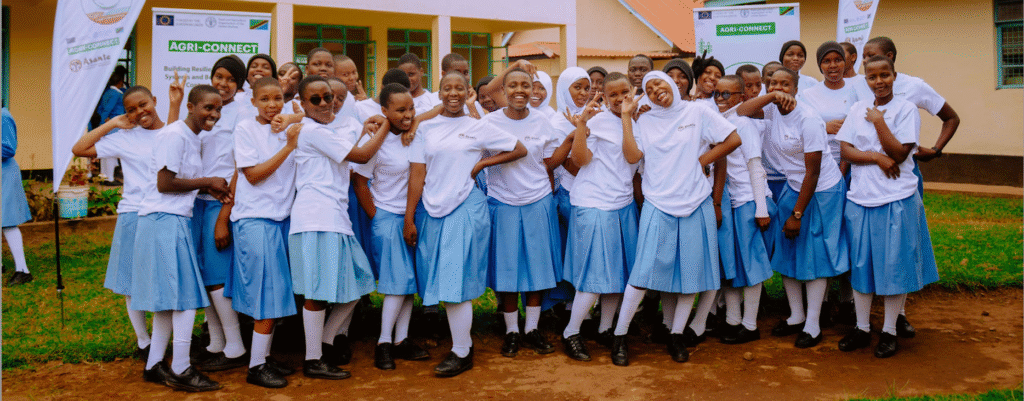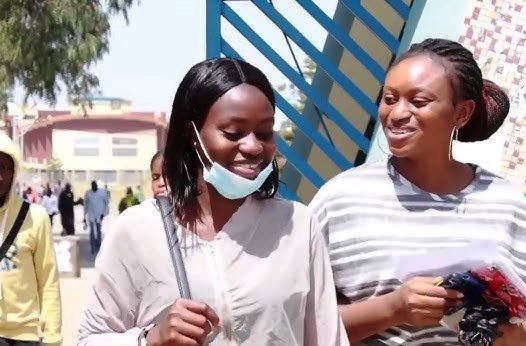As Africa continues its journey towards socio-economic transformation, one undeniable truth emerges: the continent cannot achieve its full potential without prioritising gender inclusion in higher education. While access to tertiary institutions has improved over the past decades, Sub-Saharan Africa still lags behind the rest of the world, with university enrolment rates hovering at a mere 9-10 per cent—starkly lower than the global average of over 40 per cent. These figures highlight not just a gap in education, but a missed opportunity to unleash the creativity, innovation, and productivity of half the continent’s population.
Recent research by the British Council, in collaboration with the African Network for Internationalisation of Education (ANIE), paints a sobering picture. Despite progress in female participation in early-stage entrepreneurship, women in Africa continue to face systemic barriers that limit their ability to access higher education, secure employment, and grow businesses. The consequences are clear: without deliberate action, the continent risks leaving behind a generation of talented women whose contributions could redefine Africa’s economic and social future.

Table of Contents
Persistent Barriers for Women in Higher Education
The challenges for young African women go far beyond mere enrolment. Globally, women make up approximately 60 per cent of young people who are neither in school, employment, nor training. In Sub-Saharan Africa, the situation is even more pronounced. Cultural norms often prioritise boys’ education, while early marriages, household responsibilities, and gendered expectations contribute to higher dropout rates among girls.
Even when women secure university admission, the road ahead is fraught with difficulties. The British Council’s study covering Ghana, Kenya, Nigeria, and South Africa identifies widespread discrimination, harassment, and exclusion from leadership positions within academic institutions. Gender policies, when they exist, are poorly understood and inconsistently enforced. Female graduates consistently experience higher unemployment rates compared to their male counterparts.
With between 8 million and 11 million young Africans entering the labour market each year, and only about three million formal wage jobs created annually, women disproportionately face insecure and informal work. Entrepreneurship offers promise, yet a lack of start-up capital, mentorship, and systemic support limits opportunities for female innovators. Without targeted interventions, the gender gap in higher education and economic participation will continue to widen.

Evidence-Based Solutions and Proven Models
Despite these challenges, research and initiatives provide a roadmap for transformative change. The British Council’s “Higher Education Gender Analysis: Access to Employability and Entrepreneurship Opportunities” study outlines practical, evidence-based strategies that universities, governments, and private-sector partners can adopt to bridge persistent inequalities.
Two notable models have shown measurable impact: the Innovation for African Universities programme and the Gender Equality Partnership (GEP) grants, part of the British Council’s Going Global Partnerships programme. Both initiatives focus on equipping female graduates with market-relevant entrepreneurial skills, integrating industry-academia collaboration, providing mentorship, and fostering enterprise-focused curricula.
The IAU programme, for example, embeds gender-responsive teaching, strengthens institutional support for female entrepreneurs, and improves access to funding and professional networks. By targeting both the structural and cultural barriers within higher education institutions, such programmes demonstrate that inclusive policies are not only fair—they are economically and socially beneficial.
The GEP grants further enable cross-border collaboration, funding joint research, institutional partnerships, and policy dialogues centred on gender equity. These initiatives offer scalable frameworks that universities across Africa can replicate or adapt to meet local challenges. The ultimate goal is clear: turn research into actionable solutions, ensuring that higher education becomes a lever for empowerment, innovation, and inclusive economic growth.

Transforming Africa’s Future Through Gender Equity
Realising gender inclusion in higher education requires systemic reform on three fronts. First, universities must implement robust gender reforms, including anti-harassment measures, gender-sensitive student support services such as childcare and flexible learning, and initiatives that prioritise female leadership. Second, policy reforms should embed affirmative action in admissions, faculty recruitment, targeted scholarships, and funding for female students and entrepreneurs. Third, higher education institutions must invest in digital skills, infrastructure, and entrepreneurship education across disciplines.
When these reforms are implemented collectively by universities, governments, industry partners, and funders, the results extend beyond individual success. Female students gain entrepreneurial skills, access funding, secure mentorship, and are empowered to break intergenerational cycles of inequality. Communities benefit from innovation-driven economic growth, and societies become more resilient and inclusive.
This is not just a policy imperative; it is an economic and social necessity. Africa stands at a crossroads where bold action can harness the full potential of its people. Proven programmes like Innovation for African Universities and Going Global Partnerships offer a blueprint for success, but scaling these initiatives requires commitment from all stakeholders. Universities must champion gender-responsive curricula, governments must prioritise funding and supportive policies, and the private sector must invest in female talent.
As the continent prepares to welcome millions of young graduates into an evolving labour market, now is the moment to ensure that women are not left behind. Gender-inclusion in higher education is not merely a moral obligation—it is a strategic investment in Africa’s future. By fostering equitable access, empowering female students, and supporting entrepreneurship, Africa can cultivate a generation of women who are not only participants in the economy but leaders shaping the next chapter of growth and innovation.
The British Council continues to call for collaboration among education leaders, policymakers, funders, and industry partners. Together, the vision of gender-responsive higher education can be transformed from aspiration into reality. Africa’s future depends on it, and the time to act is now. Women, equipped with the skills, resources, and opportunities they deserve, will be the architects of the continent’s sustainable growth, economic transformation, and global competitiveness.
Join Our Social Media Channels:
WhatsApp: NaijaEyes
Facebook: NaijaEyes
Twitter: NaijaEyes
Instagram: NaijaEyes
TikTok: NaijaEyes
READ THE LATEST EDUCATION NEWS




